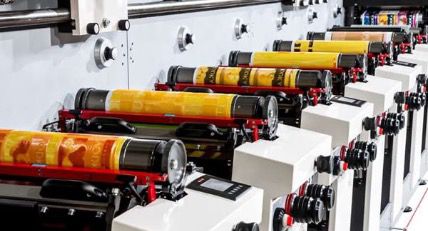
Industry leaders in Nigeria’s printing and packaging sector have thrown their weight behind flexographic technology, describing it as a cost-effective and sustainable solution to revive the country’s struggling print industry.
The call was made at the 2025 Executive Seminar on Flexographic Printing and Packaging held recently in Lagos. The event, themed ‘Unlocking Profitability and Sustainability through Flexo’, was organised by Randomsoft Limited in collaboration with UK-based Dantex Group, VIP Systems Group and Mark Anoy.
Addressing participants, Technical Director at Randomsoft Limited, Kunle Ogunjobi, said the seminar was designed to bridge the widening knowledge gap in packaging and introduce more accessible technologies to local printers.
He unveiled a new analogue flexo plate-making system developed by Randomsoft, describing it as a water-based, solvent-free alternative to traditional offset printing. The solution, he said, offers significant cost savings, operating at approximately 60 per cent of the cost of computer-to-plate offset systems, and poses less harm to the environment.
“As a company with roots in both the UK and Nigeria, we are committed to empowering local businesses with affordable, sustainable printing technologies,” Ogunjobi stated.
Managing Director of FAE Limited, Layo Bakare Okeowo, stressed the need for local printers to modernise operations and reduce dependency on imported printing materials and outdated methods. Comparing flexo to conventional offset printing, she said the former allows for faster plate production, lower maintenance costs, and improved environmental outcomes.
“With flexo plates ready in under 20 minutes and recyclable materials in use, this technology gives printers a chance to stay competitive in a tough market,” she said.
Representing the Lagos State Government, Titilayo Oshodi, Special Adviser on Climate Change and Circular Economy to the Governor, urged the printing industry to align with Lagos’ broader sustainability agenda.
She highlighted the government’s circular economy initiatives, youth-focused innovation programmes, and growing public-private partnerships as opportunities for printers to embrace green practices.
The shift to flexographic technology is seen by stakeholders as vital in repositioning Nigeria’s print industry amid a global decline in demand for traditional print formats like newspapers and books.
Managing Director of Academy Press Plc, Gbenga Ladipo, said flexo printing is particularly relevant for packaging, which is now the most resilient and rapidly growing segment of the print industry.
“Flexo is not just a printing method; it’s a survival strategy. As volumes for conventional print decline, packaging remains strong, and that’s where flexo thrives,” Ladipo said.
International technology providers also used the event to showcase innovations. Emmanuel Mougenot, Flexo Manager at Dantex Group, introduced a water-washable flexo plate that reduces production time and improves operator safety by eliminating the use of harsh solvents.
CEO of VIP Systems Group, Guenter Franz, called for more creative and dynamic packaging designs to appeal to Nigeria’s growing youth population. He also noted challenges in local paper quality and the dominance of global paper manufacturers in the supply chain, which continue to limit local production efficiency.
The seminar concluded with a unified call for greater collaboration between government agencies, private sector players, and technology providers to fast-track Nigeria’s transition to a more modern, profitable, and environmentally responsible print and packaging industry.
